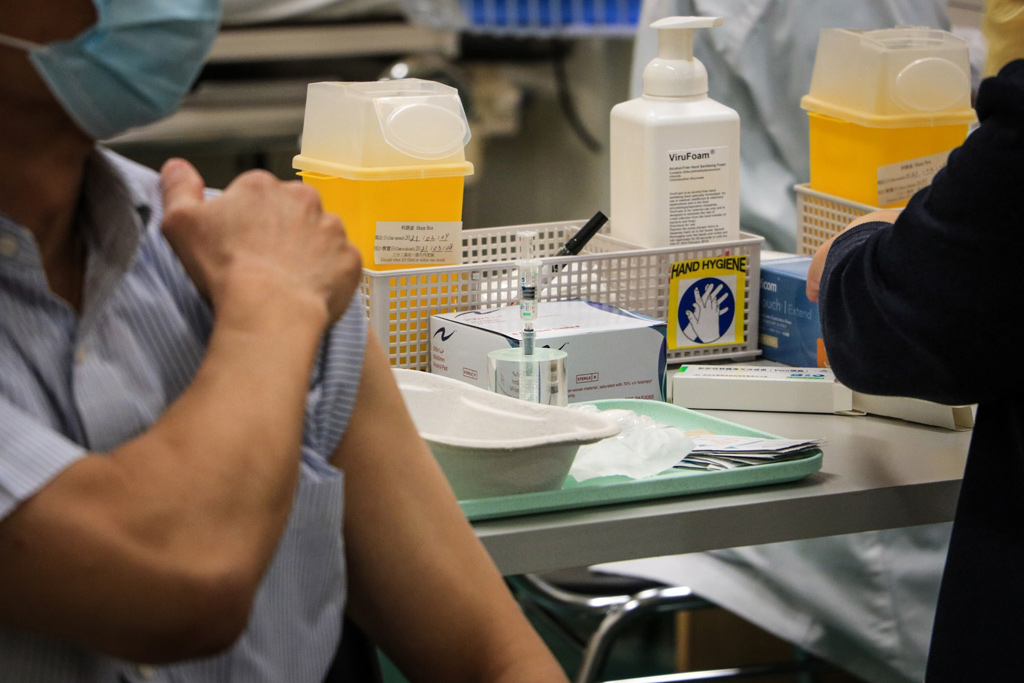
It is not only a matter of morality but also an issue of general protection and even of geopolitics: it is necessary to immunise the world, or at least to try to, and to this end launch a global vaccination campaign against COVID-19. Western leaders have been slow to react, but they at last seem better disposed towards the proposal, as became clear at the virtual G7 summit held last Friday. It was not a foregone conclusion, nor are all the guarantees on offer. In any event, while the method is multilateralism, the goal is the universalism of the kind that has become a common or collective good.
The multiplication and spread of COVID-19 (SARS-CoV-2) variants, and the doubts surrounding the long-term efficacy of the current vaccines, suggest that we are facing a global phenomenon that is not only epidemic but could become endemic, especially given that, promising test results notwithstanding, it is not known for certain whether vaccine recipients cease being infectious, although there is every hope that they do.
In order to normalise –albeit involving another type of normality– the economic and social lives of all it is necessary to immunise not only ourselves as individual societies (treating, if required, European society as one) but the entire world: the developed, the emerging and the emerged, and what is referred to as developing. Because the variants are starting to become plentiful and they spread at speed over great distances, and they will require us to update and no doubt re-vaccinate ourselves regularly. Immunisation does not necessarily mean vaccinating everyone but certainly a large proportion, with another portion having suffered and overcome the infection. But universal immunisation, for the planet’s 7.8 billion people, does not seem feasible, even if everyone wanted to have the vaccine, which they do not, and given that there are as yet no vaccines for children. Until now it has been possible to eradicate only one infectious disease, smallpox, although others (such as polio) have been successfully wiped out regionally.
The West made a serious blunder at the start of COVID-19 in supposing it was another epidemic that would remain confined to Asia. And it has hit the West hard. Back in 2009, after the H1N1 swine flu spread from Mexico and extended to more than 200 countries, causing at least 18,000 recognised deaths, the wealthy countries commandeered most of the vaccines, depriving the poor ones. This time, 2020 saw the launch of COVAX, the Vaccine Alliance (Gavi) and the ACT Accelerator, essentially for the purchase of large batches of vaccines, tests and treatments for some 2 billion people –to administer them free of charge to 92 medium and low-income countries collectively accounting for some 4 billion people–. But the initiatives have fallen short in terms of budgets and doses. As an immediate measure, the French President Emmanuel Macron has urged the EU and the US to send at least 5% (only 5%?) of its vaccines without delay to Africa. For his part, Joe Biden has pledged that the US will provide US$2 billion this year and US$4 billion in total over two years, a donation that his country had already approved before he took office. In general terms, the G7 pledged to double its contributions to the global fight against COVID-19 to US$7.5 billion in order to vaccinate 20% of the poorest countries this year, meaning the money available will total US$10.3 billion, less than half the minimum needed. China has accused the West of stockpiling doses. António Guterres, the UN Secretary General, described the vaccination campaign as ‘wildly uneven and unfair’, when, as he noted recently, 10 countries had administered 75% of the vaccines, and 130 countries had not received a single dose (other studies reduce the percentage to 56%). The issue has acquired inordinate importance on the global agenda. Given a problem of production bottlenecks worldwide, this is even more the case when output has to be adapted to the new challenges that are emerging.
The priority for all governments is naturally their own citizens. But the rest of the world will continue having an impact on them. This is the conclusion of academic studies, like that of Cem Çakmakli and other economists, and also the heads of international organisations who have acted as moral megaphones and have brought pressure to bear, with the help of media, to ensure political leaders take action. Ngozi Okonjo-Iweala, the new head of the World Trade Organisation (WTO), the first woman and African in the role, has warned against vaccine nationalism and indicated that her top priority will be to ensure that the WTO does more to address the pandemic. The WTO has some say in the matter, because its director-general is proposing to make vaccine-manufacturing licences available at affordable prices. Tedros Adhanom Ghebreyesus, Director-General of the unsatisfactory World Health Organisation (WHO) has been warning for months that ‘no one is safe until everyone is safe’ and that ‘the world is on the brink of a catastrophic moral failure’. The rich world is being short-sighted not only in health but also in economic terms, because combatting the pandemic globally is also essential for general economic recovery. It is not only a question of generosity but also of essential investment. As Martin Wolf puts it, ‘the effort to vaccinate the world is not the only test of our ability to co-operate’ but it ‘is a test of our capacity for self-interested co-operation, because the world cannot return to normal if the pandemic is not controlled everywhere’. Achieving this will require, in the best-case scenario, not months but years.
Underlying the vaccination policies there is also an entire geopolitics of vaccines, instruments not only of healthcare but also of political power, as has been seen with China and Russia and its Sputnik V, backed by a study published in The Lancet (fewer data are available for the Chinese Sinovac vaccine). Beijing and Moscow are using their vaccines as a ‘new diplomatic currency’, according to The New York Times. China refers openly of ‘vaccine diplomacy’, and even of a ‘health silk road’, with hundreds of millions of doses delivered to a wide range of countries. India, the largest manufacturer of vaccines in the world, and is also a producer of the AstraZeneca vaccine at its Serum Institute, has developed the COVAXIN vaccine, for which confirmed data are so far lacking, and is donating it to various neighbours. The West has realised that it has to react. Spain is mulling whether to push for medium-income countries’ access to vaccines at the Ibero-American Summit to be held in Andorra in April. In Africa, where owing to the youthfulness of the population the vaccine campaign seems less urgent, but also necessary for both the continent and for Europe, the African Union has taken up the issue.
The South Africans discovered, thanks to tests conducted by their own scientists, that the Oxford-AstraZeneca vaccine was not working well enough on their own 501.V2 variant, and have halted its use pending further research. Meanwhile they have turned to the Novavax and Johnson&Johnson vaccines, which have shown their efficacy and which are logistically easier in such countries, since they require less cold storage. Some racial aspects have impinged on the vaccines issue. In the US, where variants are also emerging, there is greater vaccine hesitancy among the African-American population. Proportionately they are the most infected, probably also owing to their lower social status, and they are running behind in terms of vaccination. Asian countries, such as Japan and South Korea, which rejected the Chinese vaccines, asked Western pharmaceutical countries to do more tests on Asiatic subjects, because the sampling done up to that point had underrepresented Asians. As a precaution, they have also delayed mass vaccination pending the results of other countries, but they have now begun.
A new brand of wholesale global cooperation is required, both for vaccines and for treatments. Global governance has failed. After an initial ‘every man for himself’, at least on a regional basis –the EU acted correctly by centralising purchases, despite managing them badly– the G20, notwithstanding the Plan of Action it agreed, has not worked as it should. Last Friday’s virtual G7 summit has served as a spur.
The vaccines will help immensely, but the world will have to adapt to a new reality involving the need to cooperate and engage in a constant fight against this and other types of virus and their variants. At least the idea that we are all in the same boat has gained ground.


